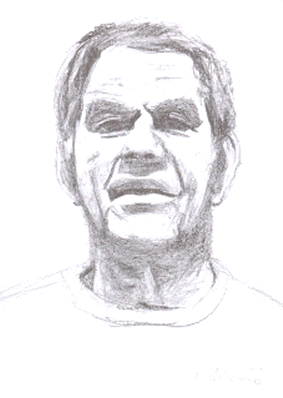This resource is hosted by the Nelson Mandela Foundation, but was compiled and authored by Padraig O’Malley. It is the product of almost two decades of research and includes analyses, chronologies, historical documents, and interviews from the apartheid and post-apartheid eras.
Edward ('Eddie') John Daniels
Edward John Daniels was born on 25 October 1928 in District Six, Cape Town. He went to work after primary school and joined the Liberal Party in 1959. He joined the National Committee for Liberation, which later became the African Resistance Movement, in 1961. The National Committee for Liberation launched its sabotage activities, in which Eddie Daniels participated, on 26 September 1961. He was arrested in July 1964 and sentenced to 15 years imprisonment.
He obtained his Matriculation certificate in prison and went on to graduate with a BA and a BCom degree. After his release he obtained a Teacher's Diploma and became a teacher.
His memoirs under the title There and Back: Robben Island 1964-1979, were published by Mayibuye Books, University of the Western Cape, 1998.

Edward ('Eddie') Daniels
by Sam Nhlengethwa
Profile
If anything had to be done or needed to be done, whatever the risk involved, Eddie was ready and available. Doing what was a necessity in fighting against injustice was, for Eddie, freedom.
Eddie served a sentence of 15 years on Robben Island. He belonged to the Liberal Party and the African Resistance Movement (ARM). He was the only Coloured sentenced with a group of young white South Africans - the regime released the others before they had served their full sentences.
Eddie received several visits by Judge Jan Steyn. The judge was keen to secure an early release for Eddie. He offered to take up the matter on Eddie's behalf. He felt that there were good prospects if Eddie was prepared to give an undertaking that he would not resort to the use of violence again.
Politely and without hesitation, Eddie turned down the proposal. Even after the judge painted a picture of changes under apartheid, Eddie was unmoved. His argument was simple. He was implacably opposed to injustice. Indeed, if the changes were as depicted by the learned judge, it may well be that there may not be need to use violence to bring an end to apartheid. And he would prefer that peaceful means be used. An undertaking, however, would bind him and if conditions had not changed he could not, in conscience, tie himself through such an undertaking.
After these visits by the judge, some of us would urge Eddie to reconsider his stance. After all, why place such weight on an undertaking given in prison? Besides, it may well be possible to formulate the undertaking in such a way that it may suffice to get him out of prison, without compromising his principles. In no way did any such arguments shake his resolve. He was bound by his word. His integrity was beyond compromise or purchase.
And so he served his full sentence, his integrity untarnished.
There is a deep and abiding sense of caring that embraces the core of Eddie's being. In his company, one always felt secure.